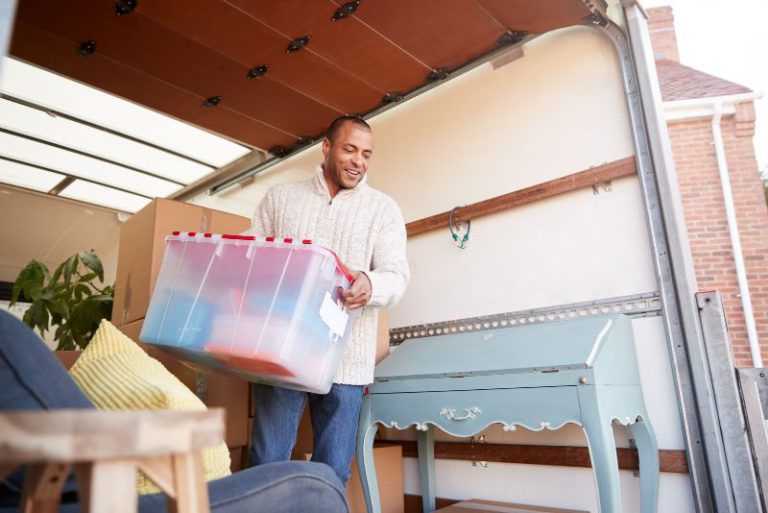If you decided to sell up and move, or buy your first home after the summer of 2022, you’re probably coming near to the exchanging and completing phase now.
The average conveyancing timescale is now around 4 months, plus the Christmas holidays may have held you back. You’ve waited a long time to make the move against a backdrop of mortgage interest rate increases and uncertainty about the housing market. But you’re committed and ready to go, with a positive mindset to start 2023 with, excited about making your new home your own. Or maybe you are simply stressed out by it all.
How stressful is moving?
You may be relieved to know that moving house in itself is not the most stressful life event according to a study conducted by Zillow.com. Of course, it tends to be the combination of moving alongside life events that make it more stressful – whether it’s downsizing following illness, or divorce, or you may be coordinating building work as part of the move, or just trying to get the children to school and stick with a regular routine during the upheaval that can cause stress.
Let’s stay positive: although around half of home movers found the process stressful, 80% said their move was worth it*.
There is also no denying that the financial side of it is stressful, but by this point you have budgeted for that and, although it’s always unpleasant, you know that the home you will own in return is worth watching your savings account balance plummet. Or will be one day.
And, if you are already aware of conveyancing timescales and likely delays in completing and exchanging, you may feel deeply frustrated, as opposed to stressed.
You may also be concerned about damaging items in the move, but if you choose your removal company carefully, and make sure they are fully insured, you can allow yourself to feel some peace of mind that if something does go wrong, you’re covered.
The important point to make is that moving, when taken in bite-sized chunks, can be less stressful than you think.
Your handy house move checklist
Here are some tips to help things go more smoothly:
Declutter before moving
Hire a skip, give it to charity, sell it on a local site but get rid of that clutter! Sounds obvious but the less you take with you, the less hassle you will have trying to find room for it in your new home. There is also no point in paying to move items you no longer want so it’s a great time to be ruthless.
Research your removal company
A good company will pack for you and unload the other end. If recommendations and reviews are important to you, try the Which? Trusted Traders endorsement scheme to find a removals company you can rely on.
It’s also worth checking whether the company is a member of the British Association of Removers (BAR), as this will mean they have met the BAR’s criteria on training, insurance, capacity and experience.
Start packing as soon as you can
Begin with items and rooms that you don’t use often. You don’t have to wait for boxes from the removal company – instead, recycle what you can to save money. Supermarkets are a reliable source of boxes which you can reinforce with packing tape.
Wrap fragile items in bubble wrap or old newspaper – or, even better, leave these to the experts!
Code boxes as you pack them so you can unload them in the correct place the other end – something simple like the room you want the box placed in and a rough outline of contents will give you enough clues to know which boxes to unpack first – and prevent you from lifting and carrying any boxes to and from other rooms unnecessarily.
If you are dismantling any furniture yourself, place screws and bolts in a freezer or sandwich bag and stick it to the underside of the furniture with tape.
Set aside a box of items you’ll need on moving day
Prepare a box of essentials that you can open first the other end – tea, coffee, milk, sugar and a kettle, toilet rolls, hand wash and a hand towel, phone chargers, house paperwork, and contact numbers for utility companies, and even a box of energy snacks and bottles of water to grab on-the-go. Music can also help to keep up the enjoyment and energy factor, so make sure you pack a radio or wireless speaker.
Pack an overnight bag with essentials for everyone in the family.
Important: Always take important documents with you, in person, such as birth and marriage certificates, passports and anything else you really can’t afford to lose.
Royal Mail redirection
Don’t forget that Royal Mail redirection takes five working days to set up. Royal Mail advises arranging a redirection at least 3 weeks prior to your moving date although you may prefer to ensure you complete and exchange first.
Not only does redirecting make sure your mail moves with you and gives you a time after you move to contact all your providers, but it also ensures you don’t miss important documents like bank statements or personal documents, protecting yourself from identity fraud.
Children and pets on moving day
To keep stress levels at bay, it could be a good move to keep pets and small children out of the way on the day you move house. Ask friends and family if they would mind helping by looking after them, or treat your dogs to a weekend with other furry friends in kennels so they don’t bolt out the door as you come and go.
First things to do when you’re in your new home
Make up your beds as soon as you arrive in your new home – don’t underestimate how tiring moving house can be! Your next port of call is to take meter readings.
Don’t forget your home insurance – contact your provider if you are moving, and check whether your home contents insurance will cover damage and breakages during the move.
Don’t forget that prices of items such as televisions have risen this year, so it’s more important than ever to make sure you are correctly covered. Find out more about the perils of home contents underinsurance here.
Your local branch will be more than happy to answer any home insurance or claims questions you may have. Contact your friendly team here.
*Zillow survey, 2021



